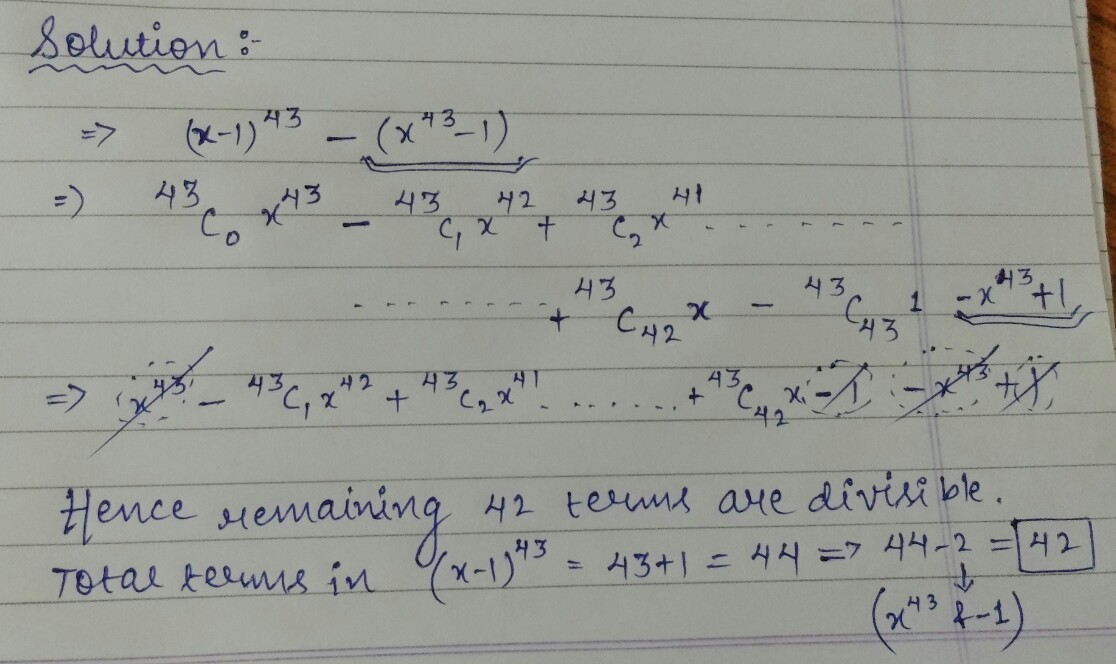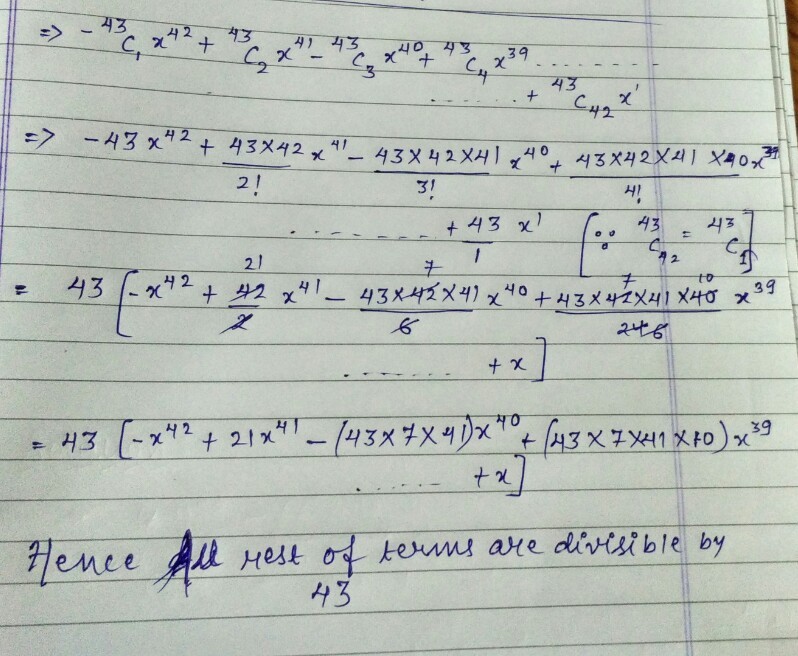Powerful Primes #2
( x − 1 ) 4 3 − ( x 4 3 − 1 )
When the expression above is expanded and simplified, how many of the coefficients are divisible by 43?
The answer is 42.
This section requires Javascript.
You are seeing this because something didn't load right. We suggest you, (a) try
refreshing the page, (b) enabling javascript if it is disabled on your browser and,
finally, (c)
loading the
non-javascript version of this page
. We're sorry about the hassle.
2 solutions


Moderator note:
As Pi Han Goh has pointed out, you need to show that all of its terms are divisible by 43.
You still need to show that ( 1 4 3 ) , ( 2 4 3 ) , ( 3 4 3 ) , … , ( 4 2 4 3 ) are all divisible by 43.
Read this .
Log in to reply
Done @Pi Han Goh :)
Log in to reply
No. you have only shown that the first terms are divisible by 43. It may appears to be true for the first few terms but it might not be true for all the terms. You need to prove that ( k n ) ≡ 0 ( m o d n ) for n prime and 0 < k < n .
Log in to reply
@Pi Han Goh – how can i do this help needed, is there any approach for that ??
Log in to reply
@Raj Rajput – Hint: Fermat's Little Theorem.
Log in to reply
@Pi Han Goh – :( i don't know about that theorem .. is there any book for such theorems
( x − 1 ) 4 3 − ( x 4 3 − 1 ) = x 4 3 − ( 4 3 1 ) x 4 2 + ( 4 3 2 ) x 4 1 − . . . − 1 − ( x 4 3 − 1 ) = − ( 4 3 1 ) x 4 2 + ( 4 3 2 ) x 4 1 − ( 4 3 3 ) x 4 0 + . . . + ( 4 3 4 2 ) x
We note that all 4 2 coefficients ( 4 3 k ) for k = 1 , 2 , 3 , . . . 4 2 are divisible by 4 3 .
Moderator note:
This is not complete.
It might be true that ( 1 4 3 ) , ( 2 4 3 ) , ( 3 4 3 ) are divisible by 43 but you need to show that ( k 4 3 ) is divisible by 43 for integer 0 < k < 4 3 .
It is not always true that ( k n ) is divisible by positive integer n for integer 0 < k < n . Take n = 8 as a counterexample.